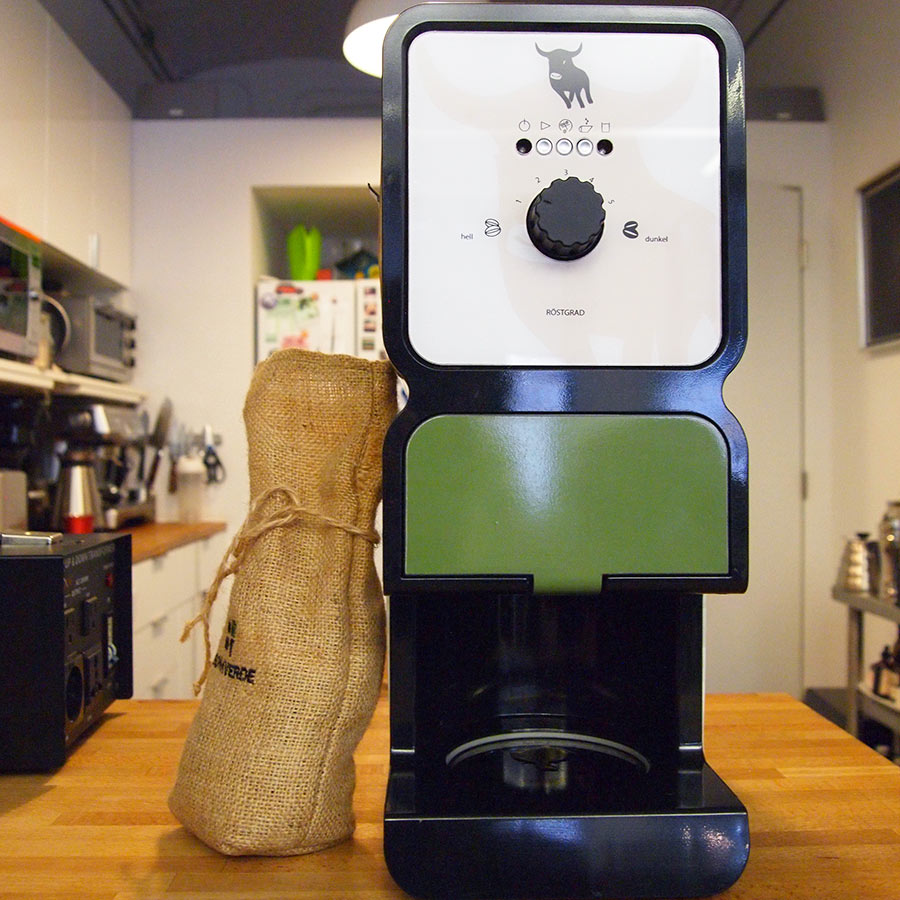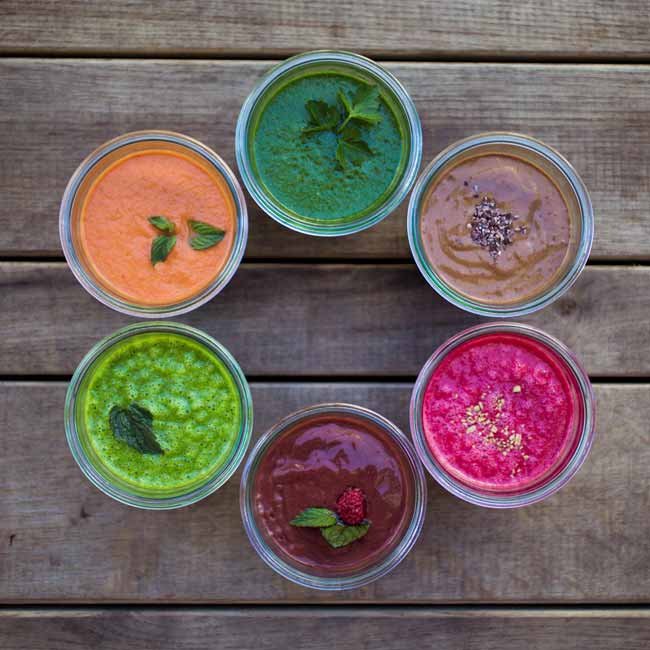Five Elephant
Kris Schackman and Sophie Weigensamer are redefining how Berliners take their coffee

by Jason Kenny
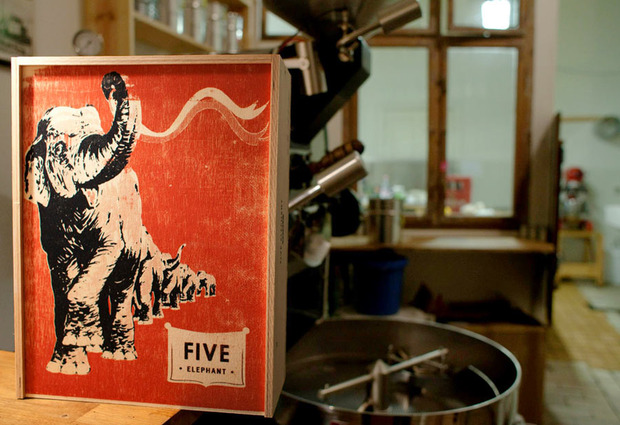
There’s a corner of Berlin where three canals meet, separating the über desirable Kreuzberg, the increasingly trendy Neukölln and the largely ignored Treptow. While one of the canals between Kreuzberg and Treptow once served as a part of the Berlin Wall, dividing East and West, the neighborhood today is a much more open-minded. One place reflecting the zeal of this progressive community is Five Elephant coffee, a shop run by Austrian Sophie Weigensamer and American ex-pat Kris Schackman. Tucked away in the buried corner of social housing in old West Berlin, past the tattooed and pierced punk corner of Kotbusser Tor, Five Elephant brews up beans sourced directly from the farmer alongside an array of freshly-baked cakes and pastries.
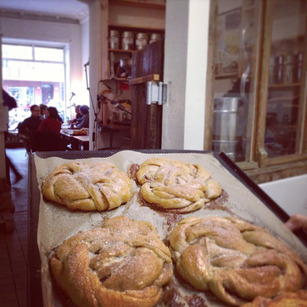
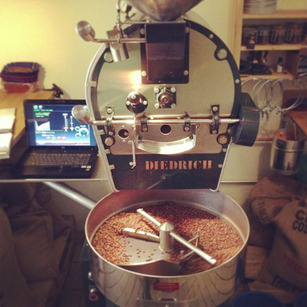
The micro-roastery is a natural step for Weigensamer, who was already familiar with the city’s coffee scene as the baker behind pastries for two Berlin cafés. But it was actually a trip to NYC that inspired the couple to create Five Elephant, after visiting a neighborhood shop that roasted beans on site. “I had never been to a small roastery before,” Weigensamer recalls. “Besides the taste, the idea of having a roaster at the door [was appealing].”
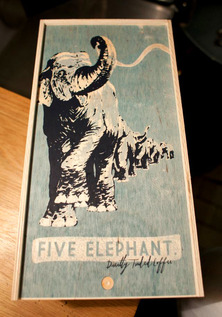
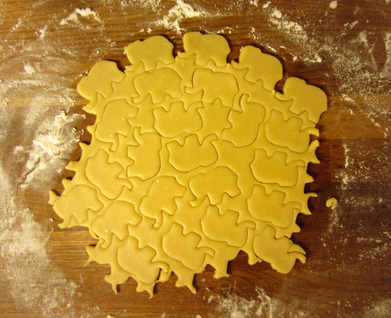
The Five Elephant philosophy stems from the community roastery of Schackman’s Massachusetts youth, with a suitably modern global bent. “When people say they grew up with coffee pots, that wasn’t where I was,” Schackman recalls. He sees the development in quality coffee over the last decade partially as a growth from a reaction against Starbucks, as well as a renewed interest in the different roasting and brewing techniques. “I think people started to revisit these old styles of making coffee and the hand-brewing, and that sparked another culture,” expands Schackman.
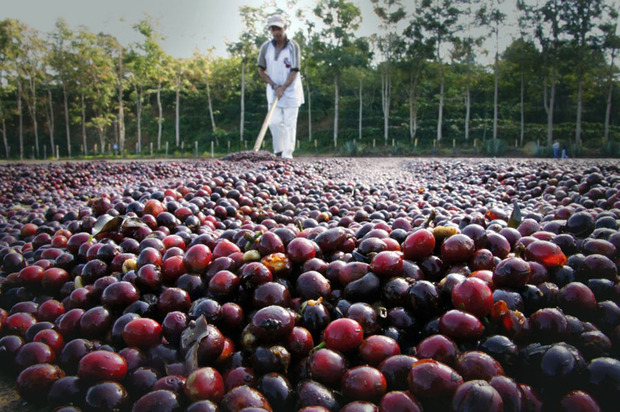
Their DIY philosophy is physically evident at Five Elephant. Almost every part of the shop, from stools to the counter and tabletops, has been constructed by the twosome. Additional details have been sourced with equal attention—for example, the lights were brought in from an old ship. This self-created aspect of Five Elephant spreads beyond the decor to the coffee ,of course. Rather than simply buying the coffee wholesale or importing it from a large company, Five Elephant maintain a relationship with the farms they buy from, one that extends to seasonal visits to meet the growers.
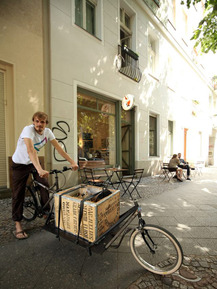
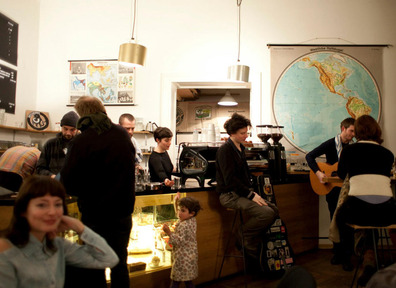
“There are three different aspects—where you get your beans, how you roast them and how you serve them—and it’s a challenge to do all three. There are so many variables, and any one of them can really upset the enjoyment of drinking a cup of coffee,” says Schackman. “For us the first year was about learning and experiencing, and getting feedback from customers. This last trip [to Brazil], we started getting coffee directly from the farm. Our plan is each season to get a shipment of direct trade coffee and have that every season as our single source espresso.” The large maps that adorn the wall become more than just decoration when Shackman begins pointing to the parts of Africa and South America where the beans come from.
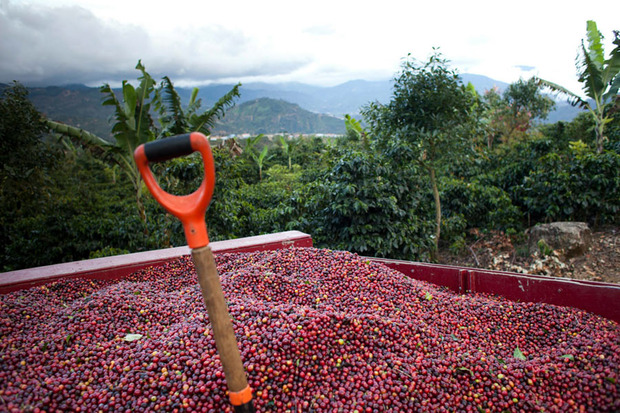
In the short time FIve Elelphant has been open, other cafés around Berlin have tapped into their good thing, ordering their own coffee and cakes—which are delivered by bicycle—from Weigensamer and Schackman directly. Learn more about Five Elephant and their roasting—which continues to expand in their online shop—or to visit the Berlin location, have a look at their website.
Images courtesy of Five Elephant
